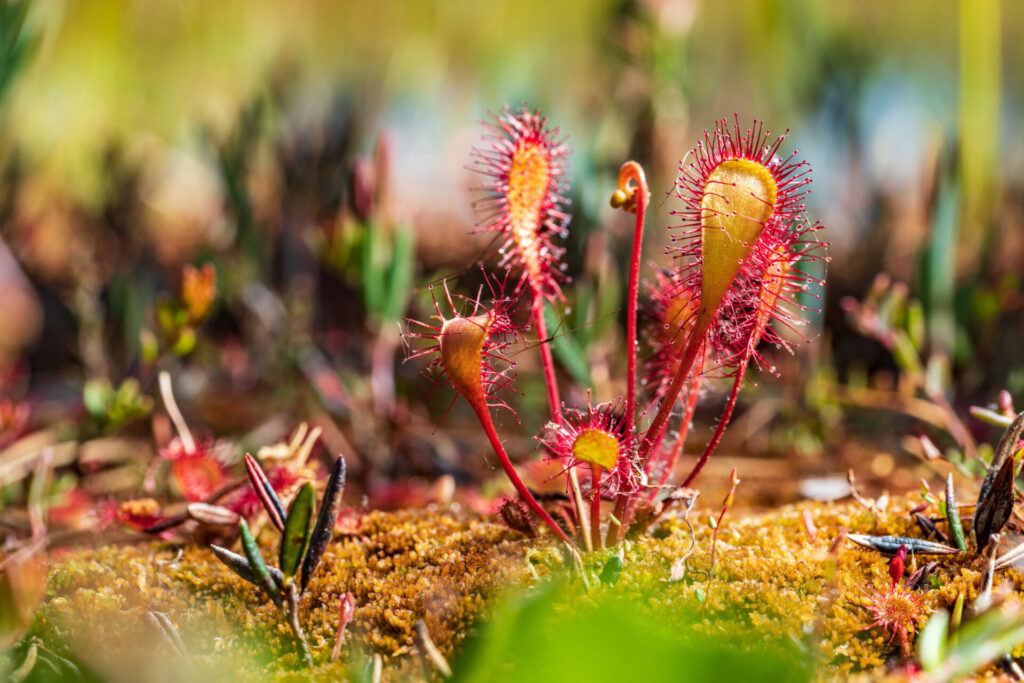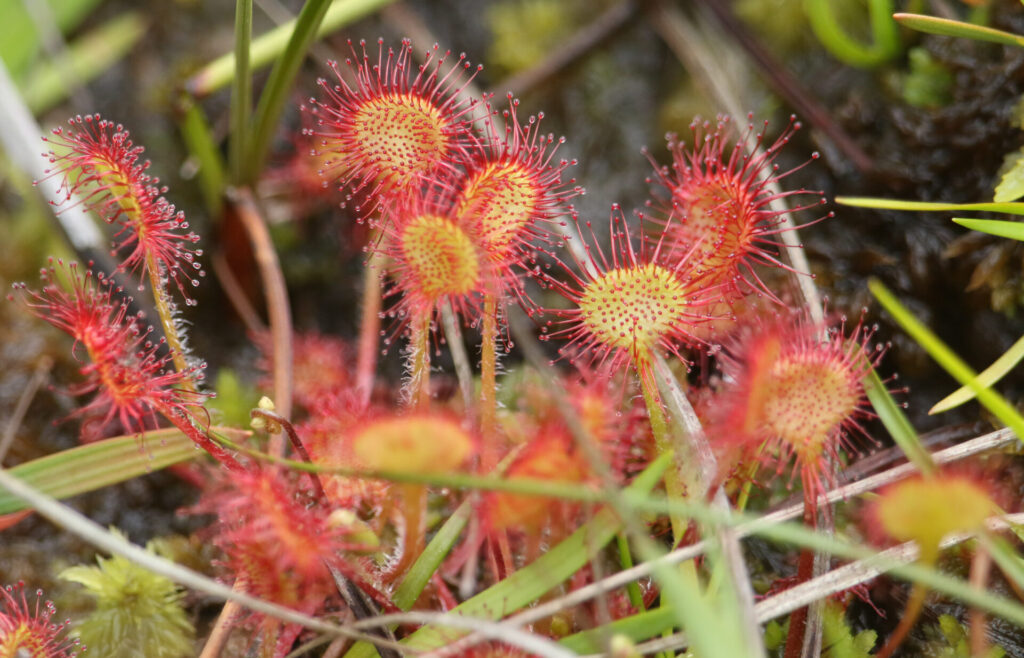Wildlife writer Jane Adams explores sundews – Dorset’s carnivorous plants – and Darwin’s fascination with their deadly allure

In a letter dated 1860, the renowned naturalist Charles Darwin wrote to a friend, “… at the present moment, I care more about Drosera than the origin of all the species in the world.”
It would be reasonable to assume Darwin was writing about a rare exotic bird, or maybe a species of tortoise … but no, he was actually getting worked up about a carnivorous plant, more commonly known as the sundew.
Carnivorous plants have always fascinated me. When I was a child, I was given a Venus flytrap and fed it live prey with tweezers. I remember watching as its hinged leaves closed around each struggling fly that buzzed for a while – and then went ominously quiet.
While I’m glad I’ve moved on from this gruesome hobby, I’m still amazed at how a rooted plant has evolved to entice, ensnare and ultimately devour another living creature for extra nutrients.
Surprisingly, Dorset is home to three native species of sundew: the round-leaved, oblong-leaved and the rare great sundew. Though far from common, all three species like the moist and infertile soils of Dorset’s boggy lowland heaths. Look for them growing quite close to the ground (their maximum height is 20cm), where their red-tinged leaves sparkle in the summer sunshine, making them easier to spot.
If you do come across one and kneel for a closer look, you will also notice hair-like structures on each leaf adorned with a droplet of liquid ‘dew’. Drawn by this deadly glistening lure, insects soon become stuck in the sticky glue. Then the sundew wraps its leaf around the prey, secretes digestive enzymes – and the unsuspecting insects are turned into a nutritious soup.
As Darwin exclaimed, ‘By Jove, I sometimes think Drosera is a disguised animal!’
Is there a triffid lurking right under our noses in Dorset, albeit in a minuscule form?
It’s an intriguing thought.

Ancient sundew folklore:
Woodpeckers use the dew to harden their bills
Dew from the plant, known as a source of youth and virility, can be used in anti-aging potions
The plant can be used as a love charm because it has the power to lure and entrap its prey

